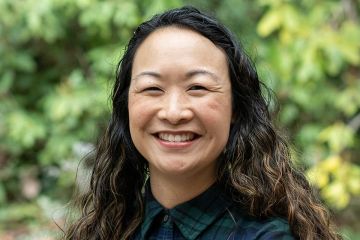How sustainable is your seafood?
Consumer demand for sustainable seafood has nearly doubled over the past four decades and many major retailers have committed to source seafood only from sustainably certified fisheries and aquaculture. However, a new study co-authored by University of Victoria marine ethno-ecologist Dr. Natalie Ban says that sustainability compliance standards need to be fine-tuned to ensure that fisheries, especially those in developing countries, are delivering on their promises.
Fishery Improvement Projects (FIPs) are designed to put fisheries on a course toward sustainability, and can also assist with obtaining official certification by the Marine Stewardship Council, an independent, international, non-profit organization which encourages sustainable fishing practices. However, the study’s authors caution that multiple types of certified seafood in the market could lead to a “race to the bottom” in terms of sustainability standards—unless the FIPs are carefully monitored to make sure that seafood retailers adhere to sustainable-improvement requirements for market access.
“We’re cautiously optimistic that these projects, which fast-track access to international markets, can lead to sustainable fisheries, especially in developing countries,” says Ban, an assistant professor in UVic’s School of Environmental Studies and the only Canadian co-author of the new study released today in the journal Science.
Ban adds that “the retailers and organizations involved with managing FIPs need to insist on progress toward reforms from the fishery as a condition for purchasing seafood from that fishery. This would likely lead to more durable conservation and greater assurance for consumers that marketing claims of ‘sustainable’ seafood are valid.”
The study, “Secure Sustainable Seafood from Developing Countries” by 11 researchers in four countries, is now available online: http://www.sciencemag.org/content/348/6234/504.summary.
-- 30 --
Media contacts
>Dr. Natalie Ban (School of Environmental Studies) at 250-853-3569, by cell at 250-889-8285 or nban@uvic.ca
Anne MacLaurin (Social Sciences Communications) at 250-217-4259 or sosccomm@uvic.ca
In this story
Keywords: sustainable, seafood, diet
People: Natalie Ban




